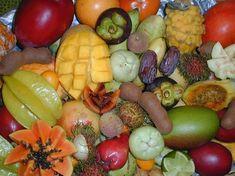
With the rise of diagnoses of coeliac disease posing problems for the wheat industry, it seems that a new campaign by the Royal College of Pathologists may raise similar campaign hurdles for those producing apples, carrots and assorted produce. A ‘Know Your Risk’ stand at the Chelsea Fower Show was designed to raise awareness of allergies to all three.
The RCP estimates that between three and six percent of Brits have one of the three. Coeliac is the most well-known - it is based on a reaction between the gluten found in wheat and the body’s ‘T cells’. Once diagnosed, sufferers must follow a gluten-free diet for life, because stimulation of the T-cells can lead to cancer in later life.
Oral Allergy Symptom, which can be precipitated by apples, is a relative of what is commonly known as hay fever. People who are allergiic to pollen may have similar symptoms when they eat certain fruit and veg, because of cross-reactivities. Symptoms include general itching or swelling of the tongue or lips, mouth or throat. The syndrome is more likely to occur in raw than cooked fruit and veg. A blood or skin test can help to confirm the diagnosis. The syndrome is most commonly seen in apples, almonds, cherries, hazelnuts, peaches, plums and walnuts.
Carrot allergies can range from mild to inconvenient, through to life-threatening anaphylaxsis (although very rare). Symptoms include abdominal pain, diarrhoea and vomiting. Because of the similarities between members of the carrot family, people who are allergic to carrots may also suffer from symptoms when they eat other members of the Apiacaea family.
“What we’re trying to do here today is simply raise awareness,” said Anna Smith at the RCP stand. “It’s important that people get tested and know their status if they suspect any problems.”